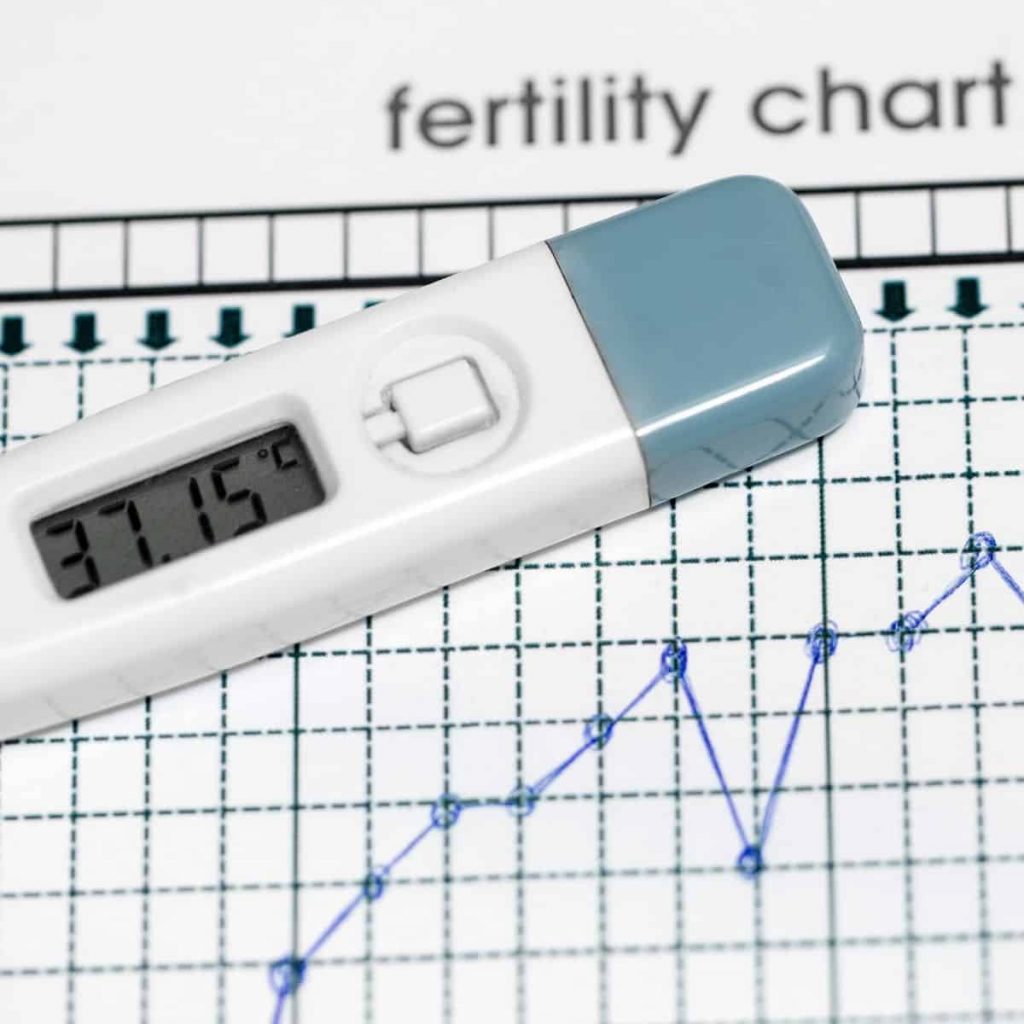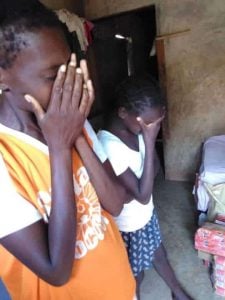Do you ever have those moments where you start to really think about a phrase or idea that you’ve heard before, and you suddenly realize you have no idea what it means?
More so, you’re clueless about how this particular sentiment relates to your unique situation.
Take the phrase “fertility window,” for example.
Many of us have heard it; hell, a lot of us have probably even used it, but when push comes to shove, can you explain to someone what the phrase actually entails?
I mean, come on–what does “fertile window” mean?!
Don’t get me wrong; I understand the basic concept of a fertile window. It’s a period of time that can end with pregnancy. What I couldn’t comprehend was why.
What is going on in a woman’s body to make her more likely to conceive one day than another?
During my quest for answers, I discovered I wasn’t the only one with questions. In fact, I kept coming up against eight different questions that are asked repeatedly–”what does fertile window mean,” included.
So, whether you’re looking for tips to conceive or you’re asking yourself whether you can get pregnant 3 days before ovulation, our team has come together to answer all of your most pressing questions about the “fertile window.”

This site contains affiliate links, meaning that we earn a small commission for purchases made through our site. We only recommend products we personally use, love, or have thoroughly vetted.
#1: What Does the Word “Fertile” Technically Mean?
What’s that phrase…you have to walk before you run? Well, keep that in mind while I address the first of our most common questions.
What does fertile mean?
Before you can start a deep dive into the concept of a fertile window, it’s essential to go back to the basics and understand exactly what the term “fertile” actually means.
To put it plainly, to be fertile is to be able to have children.
This doesn’t necessarily only relate to a particular time each month when a woman has a higher chance of conceiving. Being fertile also refers to age and fertility, egg quality, and other possible issues that can make it nearly impossible to get pregnant.
#2: What is a Fertile Window?
Now that you have a good handle on what it means to be fertile, you can start looking into the main event of this article:
What does fertile window mean?
While not every woman is the same, in general, the fertile window relates to an average of six days each month that women are more likely to get pregnant after having sex. Typically, those six days are the five days before ovulation and the day of ovulation.
While there are plenty of questions about what happens after ovulation and whether a woman can still get pregnant after it’s occurred, the average woman is most likely to conceive during those six days, AKA her “fertile window.”
Just remember to keep in mind that every woman is different.
One woman’s cycle does not represent the possible outcome faced of an entire group. Therefore, it’s essential to look for ways to better handle your own fertile window, such as using a fertility tracker or ovulation tracker app.

Are Your Fertile Window and Ovulation the Same Thing?
While a woman’s fertile window and her ovulation cycle directly correlate with one another, the answer is no; these two things are not the same. A woman’s most fertile time of the month merely exists because ovulation is taking place.
#3: How Long Does a Woman’s Fertile Window Last?
As we already know, most people believe a woman’s fertile window lasts around six days each month.
Since ovulation is not always easy to pinpoint, and it’s possible to get pregnant after ovulation has occurred, researchers claim an individual’s fertile window can last up to ten days each month.
#4: Is Every Woman’s Fertile Window the Same?
Wouldn’t it be nice if our bodies simply did what science said they should do? Unfortunately, though, that’s not always the case.
Take me, for example. As someone who struggles with PCOS and infertility, my chances of estimating ovulation between all of my irregular periods are slim to none.
While the pipedream would be for all of our fertile windows to line up perfectly, this is a far cry from the reality of the situation. In fact, some studies have shown that only around 30% of women actually experience ovulation and their fertile window during the textbook timeline discussed above.
If you’ve tried various ways to track ovulation and are still struggling to conceive, it might be time to set up an appointment with your doctor for some fertility testing.
#5: Should You Be Using a Fertile Window Calculator?
If you and your partner are indulging in unprotected sex for months at a time with no positive pregnancy tests, it’s not unusual to start wondering whether or not there could be a problem. Before you jump to any conclusions, why not consider a “fertile window calculator?”
If you’d like to give this option a try, here are some of our favorites:
- Women’s Heath.Gov Ovulation Calculator
- American Pregnancy Ovulation Calculator
- babyMed Fertility and Ovulation Calculator
As you can see, the common trend among these options is looking for a trusted ovulation calculator. Since ovulation and your fertile window do go together, tracking your ovulation cycle is a great place to start.
If you don’t like these online calculators, you can also check into ovulation test strips or ovulation tracker apps.
Is There a “Chances of Getting Pregnant” Calculator?
Sadly, no.
While it would be nothing short of a miracle for scientists to discover a tried and true way of predicting your chances of getting pregnant each month, this doesn’t exist.
What we do know, however, is that a normal, healthy 30-something woman only has around a 20% chance of conceiving during any given month.

#6: Are Most Fertile Windows Accurate?
While many women preparing for pregnancy are probably using various types of fertility trackers, such as a period tracking app, these apps and devices are not going to be 100% accurate.
The human body is a fickle thing. So even if you’re using your fertility trackers precisely the way you should be, there’s no rule stating that the answers it provides are absolute.
I remember when I was trying to get pregnant. I religiously used an ovulation tracker.
My basal body temperature was the first thing I checked every morning before climbing out of bed. I monitored my cervical mucus, and I also scanned my body for any potential ovulation signs that might have been brewing.
Despite my rigorous family planning routine, my so-called results always seemed to be chaotic and poorly-formed.
While I now know that was probably my PCOS-riddled body playing tricks on me, I didn’t at the time.
There are plenty of women who hope to use their fertile window to conceive, but sadly, it doesn’t work in all, or even most, situations.
This doesn’t mean you shouldn’t give it a try, however! It can be a good resource to try before going to your doctor to see what’s going on.
So before you take a deep dive into the expensive and challenging world of infertility treatment options, it’s always a good option to use natural family planning methods to figure things out on your own.
#7: Can You Get Pregnant After Your Fertile Window Ends?
Since your fertile window relates to your ovulation cycle, the better question is, what are the chances of getting pregnant after ovulation day?
While it’s not impossible you’ll get pregnant after ovulation, a woman’s egg will only survive for 12-24 hours after its release from her ovaries. So fertilization would need to happen within that time frame for conception to occur.
#8: Are There Any Fertile Window Symptoms?
In asking the question, “What does a fertile window mean?” it should come as no surprise that the follow-up question is usually, “What are the fertile window symptoms?”
Lucky for anyone who’s hoping to conceive, there are some. Be on the lookout for these nine signs of ovulation and increased fertility:
- Changes in Basal Body Temperature
- Increased Discharge
- Light Spotting
- Breast Tenderness
- Mood Swings
- Increased Sex Drive
- Bloating
- Mild Cramping, Specifically on One Side of Your Pelvis
- Increased Sense of Smell, Vision, or Taste
Using Your Fertile Window to Grow a Family
So, once you’ve discovered the answer to the question, “What is a fertile window?” and you’ve learned all about the fertile window symptoms, it’s time to start putting your newfound education to good use.
- Talk to your doctor to learn more about the ways to use ovulation and your fertile window to increase your chances of getting pregnant.
- Be sure to also stay in tune with your body.
- Pay close attention to what it does each month and use some type of fertile window calculator to help you figure out the best time to start getting busy. There’s no guarantee that this technique will work, but if you ask me, it’s well worth the time spent giving it a shot.
Have you ever found yourself asking, “What does a fertile window mean?” Did you use your fertile window to get pregnant?







